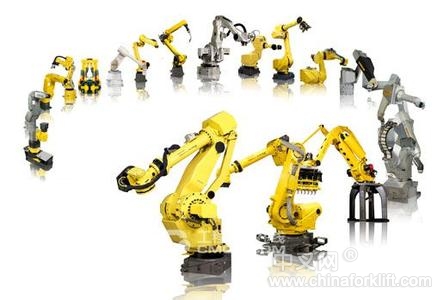With the gradual decline of the demographic dividend, the cost of labor for enterprises has been rising, and industrial robots have developed rapidly. With the continuous improvement of technology, industrial robots have become a relatively mature new generation of manufacturing technology, or will detonate the third industrial revolution.

According to the International Federation of Robotics IFR data, between 2005 and 2015, the annual growth rate of global industrial robots is 9%, while the average annual growth rate of industrial robots in China reached 25%. By the end of 2015, China has become the world's second largest robot market. In the past ten years, China's industrial automation has developed rapidly. In 2012, the scale of the automation equipment market has reached nearly 100 billion, but China is still a country with backward industrial automation. There is still a long way to go in the development of industrial robots, and the scale of the market will reach 100 billion in the future.
Stimulated by the huge market prospects, local automation manufacturers are preparing to enter the industry market in order to occupy a certain share in the future market. Foxconn Electronics is developing a new generation of automated production robots. Once the company breaks through the bottleneck of key technologies, its goal of building millions of automated production robots should soon be achievable. With Foxconn competitors launching battlefields, Guo Taiming said that Foxconn will not withdraw from manufacturing. As the manufacturing industry will eventually rely heavily on automation and robotics, Foxconn will focus on technology research and development and e-commerce in the future.
In addition, Delta Electronics Industry Co., Ltd. exhibited its own self-developed robots. According to its responsible person, the company's robots have been used internally, and will be promoted if they can meet the demand after one year.
It is reported that in the field of industrial automation, there are mainly two business forms, one is called OEM, which provides product equipment, and is mostly used in the fields of textile machinery, chemical fiber, packaging, woodworking, etc., which need industrial machinery, and the other provides solutions for customers. The program, called SI, is more in need of industries that require large systems such as metallurgy, papermaking, and water treatment. In the first half of 2013, OEM market automation user purchases increased by 2.3% year-on-year, while SI, the project-based automation market, grew by 4.5% year-on-year.
Continuous Pre-expander Machine
eps pre-expander, eps beads expanding, eps material expanding machine
Zhejiang Huasheng Machinery Equipment Co.,Ltd , https://www.huashengepsmachine.com